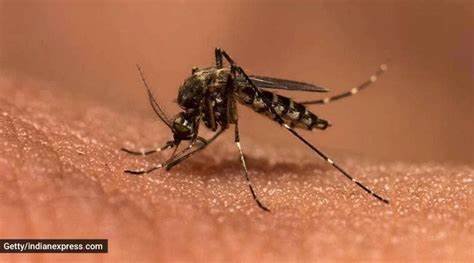Researchers have made an intriguing discovery regarding the leaves of a traditional medicinal plant found in the United States and Canada. According to a recent study published in the journal ACS Omega, compounds found in Labrador tea, which consists of multiple closely related plants belonging to the genus Rhododendron, exhibit the ability to combat the malaria parasite. The findings shed light on the therapeutic potential of this herbal remedy.
Labrador tea is derived from small, evergreen shrubs with fuzzy leaves and is commonly used by indigenous communities in the US and Canada to prepare herbal teas. Previous studies have already demonstrated that the essential oils extracted from these plants possess antimicrobial properties that could aid in the fight against antibiotic-resistant microbes.
To delve deeper into the composition of Dwarf Labrador tea, or Rhododendron subarcticum, researchers from the University of Laval in Canada and their colleagues collected leaves of this plant from Nunavik, a region in northern Quebec. The team extracted the essential oil from the leaves and conducted analyses using gas chromatography, mass spectrometry, and flame ionization detection. Through their investigation, they identified 53 compounds present in the oil.
Notably, the researchers found that 64.7 percent of the oil was comprised of ascaridole, followed by p-cymene at 21.1 percent. This particular combination of compounds had not previously been reported in closely related North American Labrador tea varieties, although it had been identified in subspecies originating from Europe and Asia.
To assess the antiparasitic activity of the oil, the team exposed two strains of the malaria-causing parasite Plasmodium falciparum to both the oil and ascaridole individually. One of the strains used in the experiment was resistant to known antimalarial drugs. The study revealed that ascaridole primarily acted against both strains of the parasite, aligning with the properties observed in other traditional medicines rich in this compound.
These findings underscore the importance of investigating and safeguarding plants used in traditional medicinal practices, particularly those hailing from climates that are being affected by climate change. The potential of Labrador tea as a natural remedy against malaria showcases the value of exploring traditional knowledge and harnessing the power of nature in the ongoing battle against infectious diseases. Further research is warranted to fully understand the mechanisms involved and to explore the feasibility of utilizing this compound in the development of new antimalarial treatments.

